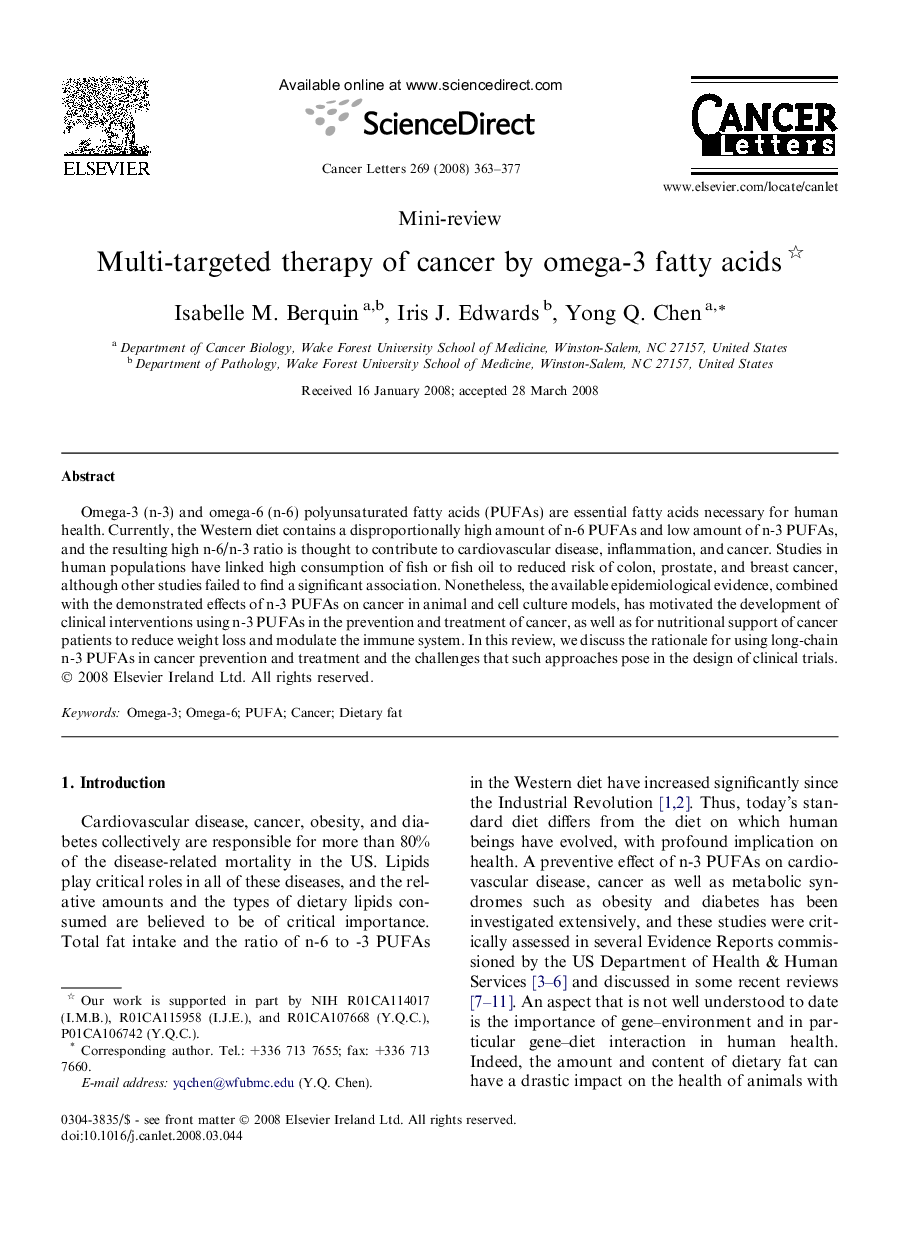| Article ID | Journal | Published Year | Pages | File Type |
|---|---|---|---|---|
| 2114824 | Cancer Letters | 2008 | 15 Pages |
Omega-3 (n-3) and omega-6 (n-6) polyunsaturated fatty acids (PUFAs) are essential fatty acids necessary for human health. Currently, the Western diet contains a disproportionally high amount of n-6 PUFAs and low amount of n-3 PUFAs, and the resulting high n-6/n-3 ratio is thought to contribute to cardiovascular disease, inflammation, and cancer. Studies in human populations have linked high consumption of fish or fish oil to reduced risk of colon, prostate, and breast cancer, although other studies failed to find a significant association. Nonetheless, the available epidemiological evidence, combined with the demonstrated effects of n-3 PUFAs on cancer in animal and cell culture models, has motivated the development of clinical interventions using n-3 PUFAs in the prevention and treatment of cancer, as well as for nutritional support of cancer patients to reduce weight loss and modulate the immune system. In this review, we discuss the rationale for using long-chain n-3 PUFAs in cancer prevention and treatment and the challenges that such approaches pose in the design of clinical trials.
